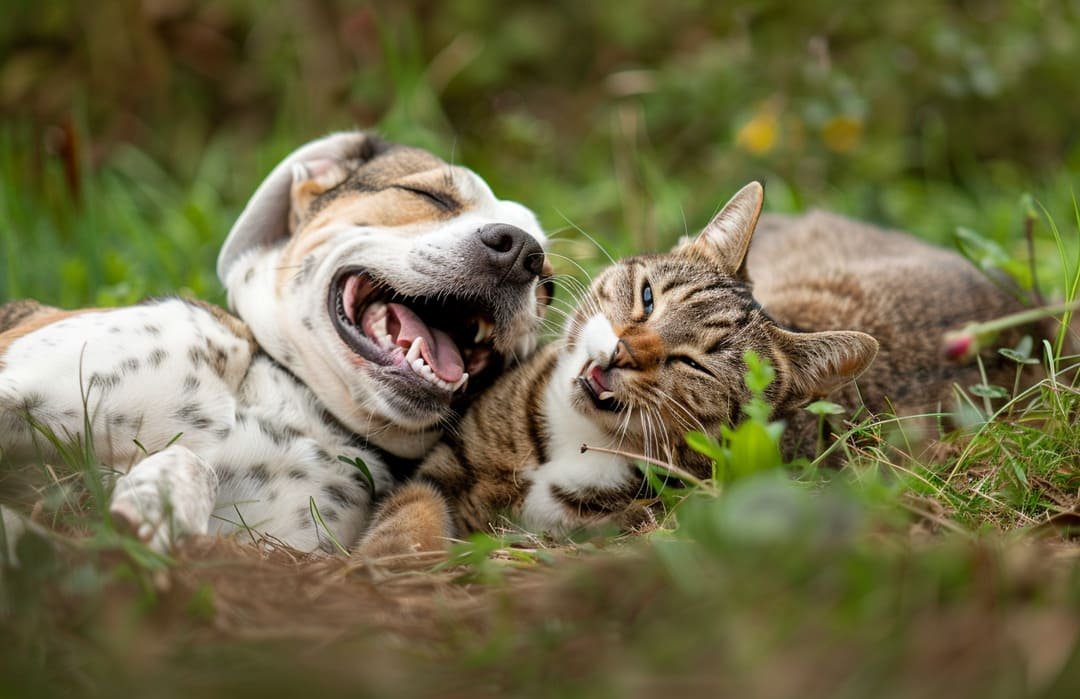What could mucus on your dog's poop be telling you about their health? The presence of dog mucus on poop can be a concerning sign that indicates the need for a closer look at your furry companion's diet adjustment. Understanding the significance of this symptom and taking proactive steps to address it through proper nutrition can make a significant difference in your dog's digestive well-being and overall health. Join us on a journey to explore the essential strategies for optimizing your dog's diet and promoting a healthier, happier life for your beloved pet.
Identifying Signs of Poor Diet in Dogs
When it comes to your furry friend's health, paying close attention to their poop can provide valuable insights into their well-being. Here are some signs that indicate your dog might be in need of a diet adjustment:
-
Abnormal Stools and Mucus: If you notice mucus on your dog's poop or consistently abnormal stools, it could be a sign of digestive issues related to their diet.
-
Behavioral Changes: Sudden changes in your dog's behavior such as lack of energy, increased irritability, or reluctance to eat can also be linked to an inadequate diet.
-
Skin and Coat Issues: Your dog's skin and coat reflect their overall health. Dry, flaky skin, excessive shedding, or a dull coat could be indicators of nutritional deficiencies.
If you observe any of these signs in your furry companion, it's essential to address their diet to improve their health and well-being. Understanding these signs can help you take proactive steps towards making the necessary adjustments for your dog's diet.
Assessing Your Dog's Current Diet
Ensuring that your dog is receiving a balanced and nutritious diet is crucial for their overall health and digestive well-being. Here are some steps to help you evaluate and adjust your dog's current diet:
Reading Dog Food Labels
When looking at your dog's food packaging, pay attention to the ingredients list. Look for high-quality proteins, whole grains, fruits, and vegetables. Avoid foods with excessive fillers, additives, and artificial preservatives.
Evaluating Ingredients
Check if your dog's food contains essential nutrients such as protein, vitamins, and minerals. Consider consulting with a veterinarian or a pet nutritionist to assess if the current diet meets your dog's specific dietary needs.
Consulting with a Veterinarian
If you notice mucus on your dog's poop or other concerning signs, it's advisable to seek professional guidance. A veterinarian can provide personalized recommendations based on your dog's health status, age, breed, and any underlying medical conditions.
By taking the time to assess your dog's current diet, you can identify any potential areas for improvement and make necessary adjustments to promote better digestive health and overall well-being.
For more information on interpreting dog food labels, you can refer to this guide from Purina.
Making Adjustments for a Healthier Diet
To address the presence of mucus on your dog's poop and improve their overall digestive health, making dietary adjustments is key. Here are some steps to consider for transitioning your dog to a healthier diet:
Gradual Transition to New Food
-
Introduce new food slowly by mixing it with their current food over a period of 7-10 days.
-
Monitor your dog's reactions and stool consistency during the transition phase to ensure they adjust well.
Incorporating Fresh Ingredients
-
Include fresh ingredients like lean meats, vegetables, and fruits to add nutritional value to your dog's diet.
-
Avoid feeding your dog table scraps or foods high in fats, sugars, or spices.
Importance of Proper Hydration
-
Ensure your dog has access to clean, fresh water at all times to support digestion and overall health.
-
Hydration plays a vital role in maintaining healthy stools and preventing constipation, which can contribute to mucus on poop.
By gradually introducing healthier food options, incorporating fresh ingredients, and ensuring proper hydration, you can help your dog maintain optimal digestive health and potentially reduce the presence of mucus on their stools.
Choosing the Right Diet for Your Dog
Ensuring that your dog is on an appropriate diet plays a significant role in their overall health and well-being. Consider the following factors when deciding on the best diet for your furry companion:
Raw Diet vs. Commercial Dog Food
-
Raw Diet: Some pet owners opt for a raw diet consisting of uncooked meats, bones, fruits, and vegetables. While proponents claim benefits such as improved digestion and shinier coats, it requires careful planning to ensure balanced nutrition.
-
Commercial Dog Food: Commercial dog foods come in various forms, including dry kibble, wet canned food, and semi-moist options. Choose high-quality, reputable brands that offer a balanced blend of essential nutrients for your dog's age, size, and activity level.
Special Dietary Considerations
-
Allergies and Sensitivities: If your dog has known food allergies or sensitivities, look for specialized formulas that cater to these needs.
-
Age-Based Needs: Puppies, adult dogs, and senior dogs have different nutritional requirements. Select a diet that aligns with your dog's life stage.
Monitoring Progress and Adjusting as Necessary
-
Keep a close eye on your dog's overall health, coat condition, energy levels, and stool quality.
-
Consult with a veterinarian regularly to ensure your dog's diet supports their specific health needs.
Choosing the right diet tailored to your dog's individual requirements can help address issues like mucus on poop and promote optimal health and vitality. For more information on selecting the best commercial dog food, visit the official website of Royal Canin.
Socializing Your Dog to New Diet
Transitioning your dog to a new and improved diet requires patience and a strategic approach to ensure their digestive system adjusts smoothly. Here are some steps to help your dog adapt to their diet adjustment:
Introducing New Foods Gradually
-
Slow Transition: Mix small amounts of the new food with their current food to prevent sudden dietary changes that may upset their stomach.
-
Increase Proportion: Gradually increase the ratio of new food to old food over about a week.
Monitoring Digestive Health
-
Stool Quality: Monitor your dog's poop to ensure they have solid, well-formed stools without excess mucus.
-
Behavioral Changes: Observe any changes in behavior, appetite, or energy levels that could be linked to their new diet.
Seeking Professional Guidance if Needed
-
Veterinary Consultation: If your dog experiences persistent digestive issues or mucus in their stool, consult with a veterinarian for guidance.
-
Nutritional Expertise: Consider seeking advice from a pet nutritionist for personalized recommendations based on your dog's specific dietary needs.
By gradually introducing the new diet, monitoring your dog's digestive health, and seeking professional guidance when necessary, you can help your furry companion successfully transition to a diet that supports their overall health and minimizes issues like mucus on their poop.
Conclusion: Improving Your Dog's Digestive Health
Ensuring that your dog's diet supports their digestive health is essential in preventing issues like mucus on their poop. By following the steps outlined in this blog post and making the necessary adjustments, you can help your furry friend lead a healthier and happier life.
Remember, each dog is unique, and it may take time to find the ideal diet that works best for your pet. Be patient, observant, and proactive in monitoring their dietary changes and overall well-being. Regular consultations with a veterinarian and, if needed, a pet nutritionist can provide valuable insights and guidance tailored to your dog's specific needs.
By prioritizing your dog's nutrition and making informed decisions about their diet, you are taking proactive steps towards promoting their overall health and preventing potential digestive issues. Your furry companion deserves the best care possible, and proper diet adjustment is a significant step in that direction.
For more information on pet nutrition and health, you can explore the resources available on the official website of Hill's Pet Nutrition. Remember, a healthy diet leads to a happy and thriving dog!
FAQs About Dog Mucus on Poop and Diet Adjustment
What causes mucus to appear on my dog's poop?
Mucus on your dog's poop can be caused by various factors, including dietary issues, infections, allergies, or inflammation in the gastrointestinal tract. It's essential to consult with a veterinarian to identify the underlying cause and make necessary diet adjustments.
How can I tell if my dog's diet needs adjustment?
Signs that your dog's diet may need adjustment include mucus on their poop, changes in stool consistency, skin issues, behavioral changes, and reduced energy levels. Monitoring these signs can help you determine if dietary modifications are necessary.
What should I look for when choosing a new diet for my dog?
When selecting a new diet for your dog, consider factors such as high-quality ingredients, balanced nutrition, your dog's age and activity level, and any specific dietary requirements or sensitivities your dog may have. Consult with a veterinarian or pet nutritionist for personalized recommendations.
Is it normal for dogs to experience digestive issues during a diet adjustment?
Some dogs may experience mild digestive issues, such as temporary changes in stool consistency or mild gastrointestinal upset, during a diet adjustment period. Gradually transitioning to a new diet and monitoring your dog's reactions can help minimize these issues.
How long should I wait to see improvements in my dog's digestive health after adjusting their diet?
The time it takes to see improvements in your dog's digestive health after adjusting their diet can vary depending on the individual dog and the nature of the dietary changes. In general, gradual improvements may be observed within a few weeks, but significant changes may take longer. Regular monitoring and veterinary guidance can help track progress effectively.


